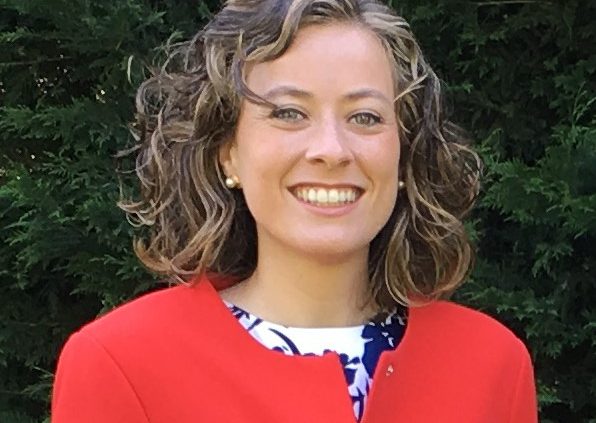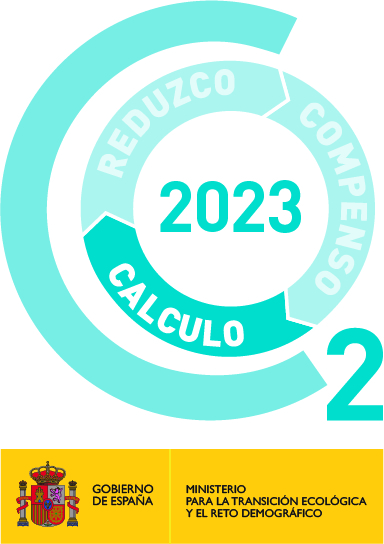Maite Garmendia, Project Manager of Power Supply Systems
One of the most noteworthy aspects of JEMA Energy’s operating philosophy is how it addresses project management. After every request, we form multidisciplinary teams with representatives of the departments involved and assign a manager to coordinate the teams and serve as a single point of contact for customers. This method, together with a standardized procedure, conveys confidence and ensures that the projects are successful. Maite Garmendia, Project Manager of Power Supply Systems, explains how project management at JEMA brings added value to our customers.
More than 11 years at JEMA managing critical power systems projects for a wide range of sectors, including nuclear power plants, solar thermal and photovoltaic plants or particle research centres. This is the C.V. of Maite Garmendia, Project Manager in the area of Secure Power Supply Systems, whose extensive experience in the company, also including 4 years as Head of Quality, Safety and Environment, has given her an overarching perspective of the markets for which she works and a very clear idea of how to approach projects and their processes rigorously, to achieve the trust and satisfaction of her customers.
How would you define the role of the project manager?
At JEMA the manager has a crucial role. We are aware that we must offer significant added value. We do not produce standard products, but customized solutions, and that requires constant collaboration with the customer. In our case, we consider it important that customers always have a single point of contact to address the projects details, a familiar face to turn to whenever they need answers. At JEMA, the project manager is that well-known face, who channels the relationship of trust with our customers and coordinates all the departments internally. Once the project is assigned, we are connected to it permanently: attention never ends.
How does your responsibility differ from one JEMA business area to another?
In such specialized sectors, the role always involves expert knowledge of each sector and of the applications that we offer. Furthermore, what changes radically from one area to another is the project maturation times, which must be adapted to the customer’s requirements. In Power Supply Systems we have very short turnaround times, about 16 weeks from receipt of the order to delivery of our solutions.
What challenges does the Power Supply Systems area present?
It is a very mature market, in which manufacturers operate with a catalogue of highly standardized products. That is why it is so important for us to adapt 100% to the specifications of our customers, to show them that we can undertake any type of customization, however complex and demanding.
How can customization in this particular business area offer added value?
Many especially critical sectors require power systems that provide frequencies and voltages for their non-standard elements. To put it simply, let’s think about applied research centres. To maintain research conditions they need the precision of their power supplies to be very high; you cannot allow variations that are not infinitesimal, of parts per million. That can only be achieved with customized solutions and with the knowledge and technological capacity that we have in JEMA.
A different aspect in the case of JEMA is that multidisciplinary teams in each project are trained with representatives from different departments. How is the team coordinated to achieve specifications within the agreed deadlines?
By using highly standardized processes and monitoring them without deviations. In our case we usually appoint one person to be in charge of each department involved in the project (Purchasing, Production, SAT, Logistics, Finance, etc.). Once tasks and deadlines have been clearly assigned, it is the manager who must make sure that no one deviates from the roadmap, through daily follow-up and by scheduling weekly meetings.
Are there never unforeseen events?
Of course there are, and we also have to be quick to provide responses in those cases. We always work on a closed specification, but sometimes the customer decides to change some specification during the production process or they encounter some unforeseen difficulty during the works at their facilities and they ask us to adapt our solution. In such cases, we also have to be very agile to propose alternative solutions and help the customer find the one that will deviate the least from the original plan.
Looking back, what projects stand out because of their size or because of the solution offered?
I remember the first one very well, because it was an unusual in-house project for a very important customer – Pemex (Petróleos Mexicanos), which was a major stimulus for everyone and it went very well. On the other hand, the projects for nuclear power plants are always special because the regulations are completely different, the Nuclear Safety Council is involved, and exceptional tests come into play such as 100% assurance of equipment performance during vibrations in earthquakes simulations. It is quite an experience to take part in these types of projects.
Globalized and demanding customers
How has project management evolved over the 11 years you’ve been with the company?
The dynamics of the markets are changing and globalization itself has affected many things. We used to work much more with local customers. Recently, many new agents have appeared in various sectors and have shaped a much more globalized scenario. This requires more effort to generate a relationship of trust with them, and faster reaction to meet deadlines.
How do you think the market will evolve in the coming years?
Given current trends, the forecast is that demand will continue to grow. Agents increasingly need uninterrupted power systems because they work in critical sectors. JEMA is in a position to meet these needs and will continue to grow at the organizational level to adapt to the growth in demand. Furthermore, we are investing heavily and boosting our presence in sectors such as electromobility. The sector will experience major growth and transformation in the short and medium term and we will lead that transformation.
How will these transformations be reflected in JEMA’s project management?
We must adapt to growth in demand. The transformation will result in optimized times between bid and engineering, so that lead times between receipt of an order and launch for manufacture can reduced to a minimum. At the same time, we will have to adapt so that we can continue to reduce on-site work times as much as possible, as execution times are getting shorter and projects are already being developed worldwide.





